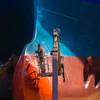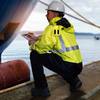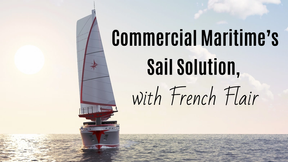ABS Adds First Japanese-flagged Carrier to its Classed Fleet
Transfer of flag follows ABS' designation as Recognized Organization
ABS has added the first Japanese-flagged vessel to its classed fleet after having been awarded the status of a 'Recognized Organization' (RO) by the Japanese government.
YAMATOGAWA, a 302,488 deadweight-ton very large crude carrier owned and managed by Kawasaki Kisen Kaisha Ltd. ("K" Line), recently transferred flag, a move which made ABS the first foreign classification society to class a vessel flying the Japanese flag.
"We are honored to become the first foreign class society to include a Japanese-flagged vessel in our fleet. This is testament to our long-term commitment to delivering the high levels of professionalism that are demanded by the top Japanese shipowners," said Derek Novak, President and COO for ABS' Pacific Division. "We look forward to providing our best-in-class technical services and global support to a growing part of the Japanese commercial fleet in the coming years."
ABS, which gained status as an RO in Japan in December 2012, is the largest foreign class society in the country. It opened its first office in Japan in 1949 and has been supporting global shipowners there ever since. Earlier this year ABS was selected to serve as the first foreign classification society for a new construction Japanese-flagged vessel when Offshore Japan Corporation, a joint venture between Kawasaki Kinkai Kisen Kaisha, Ltd. ("K" Line Kinkai) and Offshore Operation Co., Ltd., announced the construction of a new anchor handling tug supply vessel to the ABS' standards.
"K" Line is an integrated world-class shipping company that owns and operates a diverse fleet of ships adapted to serve society's marine-transport needs. It has operated containerships, gas carriers, PCC, tankers and bulk carriers; and in the past few years has diversified its business activities to include drillships, offshore support vessels and heavy-lifters.
The RO designation allows ABS to provide statutory certification services to Japanese-flagged vessels on behalf of the government and it allows ABS to verify the compliance of those vessels with the major international safety and environmental conventions such as the International Load Line, SOLAS and MARPOL.
Novak said choosing to class with ABS for ships being built in Japan will make owners eligible for the most knowledgeable technical support and regulatory guidance when calling in US waters.
ABS currently operates four offices in Japan serving both Japanese owners and other clients constructing vessels and offshore assets within the country.
eagle.org













